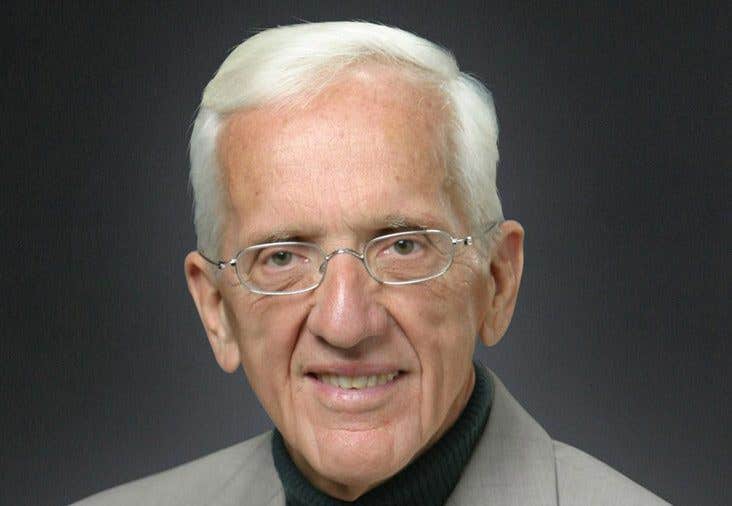The Modern Health-Care Myth
From Whole: Rethinking the Science of Nutrition
“He who cures a disease may be the skillfullest, but he that prevents it is the safest physician.” —Thomas Fuller
What a great time to be alive! Modern medicine promises salvation from scourges that have plagued humanity since time began. Disease, infirmity, aging—all soon to be eradicated thanks to advances in technology, genetics, pharmacology, and food science. The cure for cancer is just around the corner. DNA splicing will replace our self-sabotaging or damaged genes with perfectly healthy ones. New wonder drugs are discovered practically every week. And genetic modification of food, combined with advanced processing techniques, will soon be able to turn a simple tomato, carrot, or cookie into a complete meal. Heck, maybe someday soon we won’t have to eat at all—we can just swallow a pill that contains every nutrient we need.
There’s only one problem with that rosy picture—it’s totally false. None of those lofty promises is anywhere close to being realized. We “race for the cure” by pouring billions of dollars into dangerous and ineffective treatments. We seek new genes, as if the ones we’ve evolved over millions of years are insufficient for our needs. We medicate ourselves with toxic concoctions, a small number of which treat the disease, while the rest treat the harmful side effects of the primary drugs.
We talk about the health-care system in America, but that’s a misnomer; what we really have is a disease-care system.
Fortunately, we have a far better, safer, and cheaper way of achieving good health, one with only positive side effects. Furthermore, this approach prevents most of the diseases and conditions that afflict us before they show up, so we don’t need to avail ourselves of the disease-care system in the first place.
The Disease-Care System
The United States spends more money per capita on “health” care than any country on earth, yet when the quality of our health care is compared with other industrialized nations, we rank near the bottom.
As a country, we’re quite sick. Despite our high rate of health expenditures, we’re not any healthier. In fact, rates of many chronic diseases have only increased over time, and based on health biomarkers like obesity, diabetes, and hypertension, they may be headed for further increases. The prevalence of overweight and obese individuals increased from 13 percent of the U.S. population in 1962 to a staggering 34 percent in 2008.1 The U.S. Centers for Disease Control and Prevention (CDC) report that the age-adjusted Type 2 diabetes rate in the United States has more than doubled from 1980 to 2010, from 2.5 percent to 6.9 percent of the population.1
Hypertension (high blood pressure) among American adults increased 30 percent between 1997 and 2009.2
Drugs and surgical advances are keeping the death rates more or less constant despite the increased risk factors (except for diabetes, whose mortality rate has increased an astounding 29 percent in North America from 2007 to 2010).3 But the data make it clear that none of our advances in medicine deal with primary prevention, and none are making us fundamentally healthier. They aren’t decreasing the death rate. And the price we’re paying for these advances is steep.
For many years, the cost of medically prescribed drugs has been increasing at a rate faster than inflation. Think we’re getting our money’s worth? Think again.
Side effects of those very same prescription drugs are the third leading cause of death, behind heart disease and cancer. That’s right! Prescription drugs kill more people than traffic accidents. According to Dr. Barbara Starfield, writing in the Journal of the American Medical Association in 2000, “adverse effects of medications” (from drugs that were correctly prescribed and taken) kill 106,000 people per year.4 And that doesn’t include accidental overdoses.
Add to that the 7,000 annual deaths from medication errors in hospitals, 20,000 deaths from errors in hospitals not related to medications (like botched surgeries and incorrectly programmed and monitored machines), 80,000 deaths from hospital-caused infections, and 2,000 deaths per year from unnecessary surgery, and the tire-screeching ambulance ride starts to look like the safest part of the whole hospital experience.5
Yet when you ask the U.S. government about this, you’re met with deafening denial. Look at the CDC web page on the leading causes of death in 2010.
Notice anything strange? Not a peep about the medical system being the third leading cause of death in the United States. Admitting that would be bad for business, and if the U.S. government cares about one thing here, it’s the economic interests of the medical establishment.
But what about when medical care doesn’t kill? Surely the benefits to millions outweigh a few hundred thousand deaths each year?
Visit a nursing home or geriatric center to see for yourself how well the system serves those who need it most. You’ll feel the physical and emotional pain of once-vibrant people suffering needlessly with ailments and illnesses caused in large part by the pharmaceutical cocktails they take. Who can blame them? Doctors know best, right? And how many daytime TV commercials promoting drugs to decrease their blood cholesterol, drive down their blood sugar, and increase their sex drive have they watched?
I could go on and on. But I think you get the picture: the more we spend on disease care, the sicker and more miserable we seem to become.
The Good News
All our trillions of dollars are not improving our health outcomes. The promised breakthroughs are always a decade away and recede just as fast as we chase them. Genetic research has led to nightmarish anti-privacy scenarios, as well as tragic misunderstandings in which mothers are having their young daughters’ breasts chopped off just because some geneticist pricked their daughters’ fingers, tested their DNA, and scared them half to death with predictions of possible future breast cancer.
That’s all pretty depressing, I admit.
The good news is that we don’t need medical breakthroughs or genetic manipulation to achieve, maintain, and restore vibrant health. A half century of research—both mine and that of many others—has convinced me of the following:
- What you eat every day is a far more powerful determinant of your health than your DNA or most of the nasty chemicals lurking in your environment.
- The foods you consume can heal you faster and more profoundly than the most expensive prescription drugs, and more dramatically than the most extreme surgical interventions, with only positive side effects.
- Those food choices can prevent cancer, heart disease, Type 2 diabetes, stroke, macular degeneration, migraines, erectile dysfunction, and arthritis—and that’s only the short list.
- It’s never too late to start eating well. A good diet can reverse many of those conditions as well.
In short: change the way you eat and you can transform your health for the better.
1 U.S. Centers for Disease Control and Prevention, “Crude and Age-Adjusted Percentage of Civilian, Noninstitutionalized Population with Diagnosed Diabetes, United States, 1980–2010,” last modified April 26, 2012, https://www.cdc.gov/diabetes/statistics/prev/national/figage.htm.
2 United States Environmental Protection Agency, “Cardiovascular Disease Prevalence and Mortality,” last modified June 2011, https://cfpub.epa.gov/eroe/index.cfm?fuseaction=detail.viewPDF&ch=49&lShowInd=0&subtop=381&lv=list.listByChapter&r=235292.
3 International Diabetes Federation, “Morbidity and Mortality,” August 3, 2009, https://www.idf.org/diabetesatlas/diabetes-mortality.
4 B. Starfield, “Is US Health Really the Best in the World?,” Journal of the American Medical Association 284, no. 4 (2000): 483–85.
5 Ibid.
6 Centers for Disease Control and Prevention, “10 Leading Causes of Death by Age Group, United States—2010,” accessed December 2, 2012, https://www.cdc.gov/injury/wisqars/pdf/10LCID_All_Deaths_By_Age_Group_2010-a.pdf.
Related News
Get Our Best Price On The Forks Meal Planner

Forks Meal Planner takes the guess work out of making nutritious meals the whole family will enjoy.
SAVE $200 ON OUR ULTIMATE COURSE

Join our best-selling course at a new lower price!




